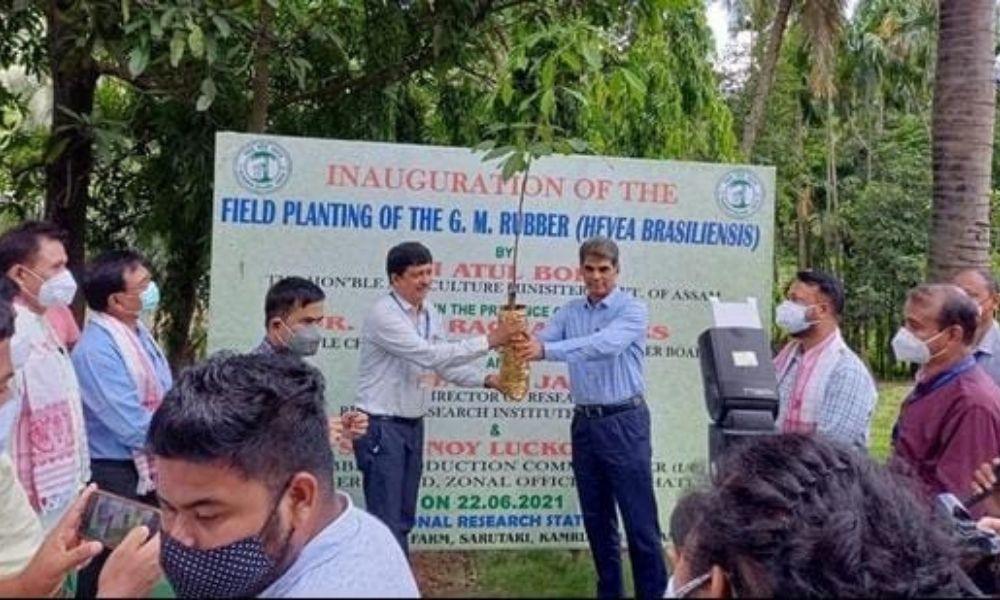
Picture credit: Twitter/@BatoriWorld
Assam: World's First Genetically Modified Rubber Planted In Guwahati
Writer: Sanal M Sudevan
Keen to explore new things and learn something new every day in the field of jounalism.
Assam, 24 Jun 2021 2:47 PM GMT
Editor : Madhusree Goswami |
A mountain girl trying to make it big in the city. She loves to travel and explore and hence keen on doing on-ground stories. Giving the crux of the matter through her editing skills is her way to pay back the journalism its due credit.
Creatives : Sanal M Sudevan
Keen to explore new things and learn something new every day in the field of jounalism.
The crop was developed in Kerala Rubber Research Institute of India. Dismissing the apprehension over GM crops, the officials said that the it was developed only after taking bio-safety measures into consideration.
A new variety of genetically modified rubber, developed in a biotechnology laboratory at Rubber Research Institute of India (RRII) in Puthuppally, Kottayam district, was planted at board's Sarutari research farm in Guwahati on Tuesday,June 22, reported The New Indian Express. The field trial of GM Rubber was launched by the board almost 10 years after the Kerala government denied permission for a similar trial in the state, citing its possible adverse impact on environment and apprehension on genetically modified crops.
Major Achievement
"It's a major achievement as we are the first to plant a GM crop on the soil, while others are still keeping them in labs. The new crop will greatly benefit farmers once the trials are over. It will resist reduced moisture or drought, low and high temperatures as well as high light intensity," said Dr James Jacob, director, RRII
As the new crop may reduce the maturity period of rubber, it might help the person who has planted the rubber tree to get early yield.
Experimental Basis
KN Raghavan, Chairman and Executive, Rubber Board said that the crop was not planted on a commercial basis but on an experimental basis. Dismissing the apprehension over the genetically modified crops, Raghavan said that field trial started after all necessary bio-safety measures required in regard to field trials involving GM crops.
"The GM rubber was developed by inserting the MnSOD gene, which was taken from the rubber plant itself. Its copies were multiplied in the laboratory and reinserted into a cell of the rubber plant which was then regenerated into a full plant that is now planted. There are no plant species in India that can breed with natural rubber. Therefore, there is no risk of genes flowing from GM rubber into any native species, a concern often raised by environmental groups," he said.
Also Read: Delhi To Give Rs 10,000 Each To 1,825 Construction Workers As COVID Relief
 All section
All section














